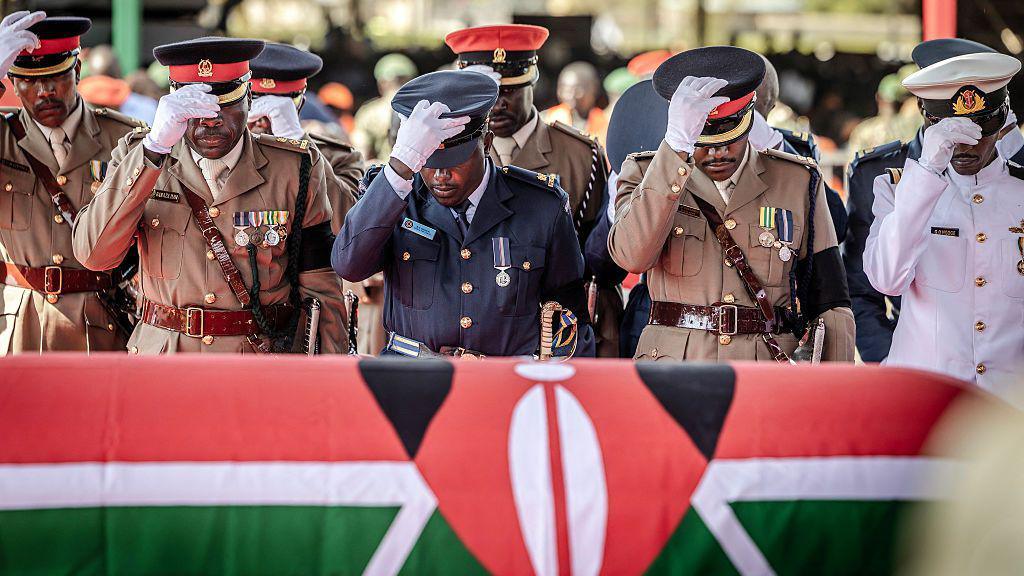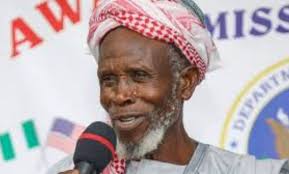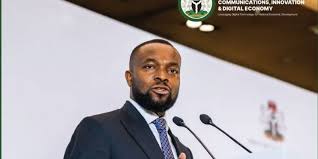
Former Kenyan Prime Minister Raila Odinga was buried on Sunday at his rural home in Bondo as Kenya faces renewed political uncertainty.
The late democracy reformer and opposition leader was laid to rest with full military honours, including a 17-gun salute by the army. He was buried next to his father, Jaramogi Oginga Odinga, who fought for Kenya’s independence and served as the nation’s first vice president.
Thousands of mourners and dignitaries from across Africa attended the ceremony described as the final farewell to a “selfless pan-Africanist.” Emotional scenes unfolded as wailing mourners breached a security cordon to access the burial site, which had initially been restricted to family and government officials.
Odinga, 80, died in India on Wednesday while receiving medical treatment. His body was received by thousands of mourners in Nairobi on Thursday before being taken to his ancestral home. Four public viewing events were held in the days leading up to his burial, attracting huge crowds. At least five people were reported dead and hundreds injured during stampedes.
President William Ruto, who signed a political pact with Odinga earlier this year, called for unity within Odinga’s Orange Democratic Movement (ODM) party and urged collaboration in shaping Kenya’s next government after the 2027 election.
“I am very proud today that Raila Amolo Odinga is being rested when one of his own students, a man he has mentored, is today the president of Kenya,” Ruto said.
He added that Odinga helped him “steady the country” after the March political pact that followed months of anti-government protests during which demonstrators stormed and burned parts of parliament.
Odinga’s party officials were divided in their tributes. While some pledged to uphold the pact with the government, others vowed to resist aligning with political rivals whom they accused of past repression during opposition protests.
Though Odinga never succeeded in five presidential bids, he played a central role in Kenya’s political evolution, mediating several post-election crises and contributing to the 2010 constitutional reform while serving as prime minister.
Former African Union Deputy Chairperson Erastus Mwencha said Odinga’s legacy extends beyond Kenya, describing him as a continental figure. “His influence is continental,” Mwencha said.
Odinga, who also ran unsuccessfully for the African Union chairperson role, was widely recognised for his mediation efforts across Africa. Since his death, world leaders have paid tribute to his statesmanship and reformist legacy.
He is survived by his wife, Ida, and children, Rosemary, Raila Junior, and Winnie.
Faridah Abdulkadiri



